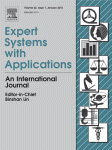Dai-Hung Ngo, Thanh-Sang Vo, Dai-Nghiep Ngo, Kyong-Hwa Kang, Jae-Young Je, Hoang Nguyen-Duc Pham, Hee-Guk Byun, Se-Kwon Kim
Food Hydrocolloids Volume 51, October 2015, Pages 200–216
| Article’s link |
Abstract
Chitosan is a natural nontoxic biopolymer produced by alkaline deacetylation of chitin. Chitin and chitosan are insoluble in water as well as most organic solvents. Chito-oligomers (COS), depolymerized products of chitosan, has received much attention in biomedical, food, pharmaceutical, agricultural and environmental industries due to their biocompatible, biodegradable, non-toxic and non-allergenic natures. Chitosan and its derivatives have been shown to possess diverse biological activities, including antioxidant, anti-hypertensive, anti-coagulant, anti-diabetic, anti-obesity, anti-allergic, anti-inflammatory, anti-microbial, anti-cancer, neuroprotective and matrix metalloproteinases inhibitory effects. Thus, this overview mainly focuses on biological effects of chitosan and its derivatives as well as presents their potential applications as ingredients in functional foods and nutraceuticals for the prevention or treatment of chronic diseases.
 1900 2039
1900 2039 khcn@ntt.edu.vn
khcn@ntt.edu.vn





